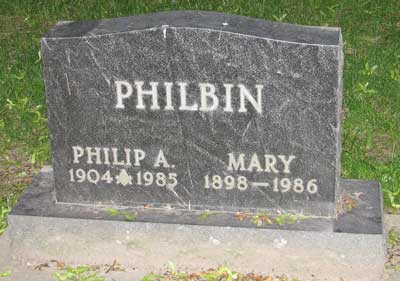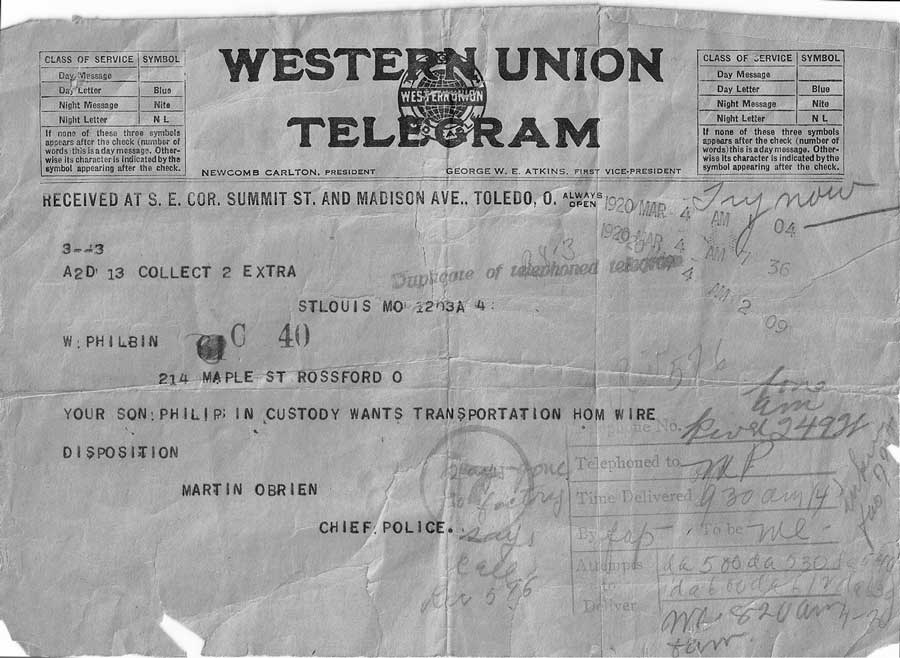Western Union
I see that May has gotten away from me, but here’s a sorta-Memorial Day post anyway. The last time I visited my mom, I was startled to run across this whilst rummaging in drawers and boxes looking for the gold ingots I know are around the house somewhere (click to enlarge):
The “W PHILBIN” is my great-grandfather, and “PHILIP” is my grandfather. He would have been a little over 16 at this rendezvous with law enforcement. This episode was never mentioned among the tales of hard work and Depression-era gypsy-wandering that my grandparents related. The story was that, when he turned 13, my great-grandfather bought him a “suit of clothes” and turned him out of the house to fend for himself. My great-grandparents were middle-class people, so that treatment seems to be more of a custom of the time than an economic necessity (although they had 7 kids). The presumption was that he found his way into the workforce and began building the stable life that I observed him living.
I know that my grandfather knocked around in the southwest sometime in the years before the Navy and meeting my grandmother in Waukegan, but I never knew what exactly he was doing. Was this the end of that sojourn, a white flag of surrender, or was it another excursion entirely? What did he do to attract the attention of the St. Louis police? Was he incarcerated, or in protective custody?
Despite the best intentions of Memorial Day, people slip inexorably through our fingers, their essences yellowing and crumbling in the closets of our recollection.



“…people slip inexorably through our fingers, their essences yellowing and crumbling…”
Sad but true Phil. I keep finding stuff that tells only a piece of a big story.
Yeah, Bill, it’s intriguing and maddening. Wouldn’t you love to sit with your forbears as cogent adults, sharing a pitcher and receiving their stories? I mean, we might have HEARD some stories as children, but with no ability to place them in context and learn more about the human being with whom we share dna.
Phil, it is intriguing and maddening. If only I had been smart enough to ask my parents a lot more questions (my grandparents were long gone by the time I became even remotely conscious of family as a young teen) I’d have a lot more context in which to place the snippets of information I have now. By the way, thanks very much for your comments on my post; I appreciate them. They prompted me to think about contexts of my own.
What a fascinating family fragment, Phil. Worth a little fictional speculation, maybe!
Phil, Springer, don’t assume you’d get the truth out of them in conversation. There are just certain family stories that get skipped. We have found that most of the information we got from mother, aunts, uncles, etc. was gussied up a bit, and huge chunks left out entirely. When we went through the “papers” we found out a LOT more.
Because they all kept in touch with each other by letter, this archive is enormous and detailed, if crumbly.
So, I suggest you get up in that attic and root around some more. Get hold of the paper stuff. You’ll find what you’re lookin’ for.
Teresa, Dick & John - I’m sure you’re right. We try our best to control our narrative. My people weren’t much for correspondence, so I have to sort of paint them myself.